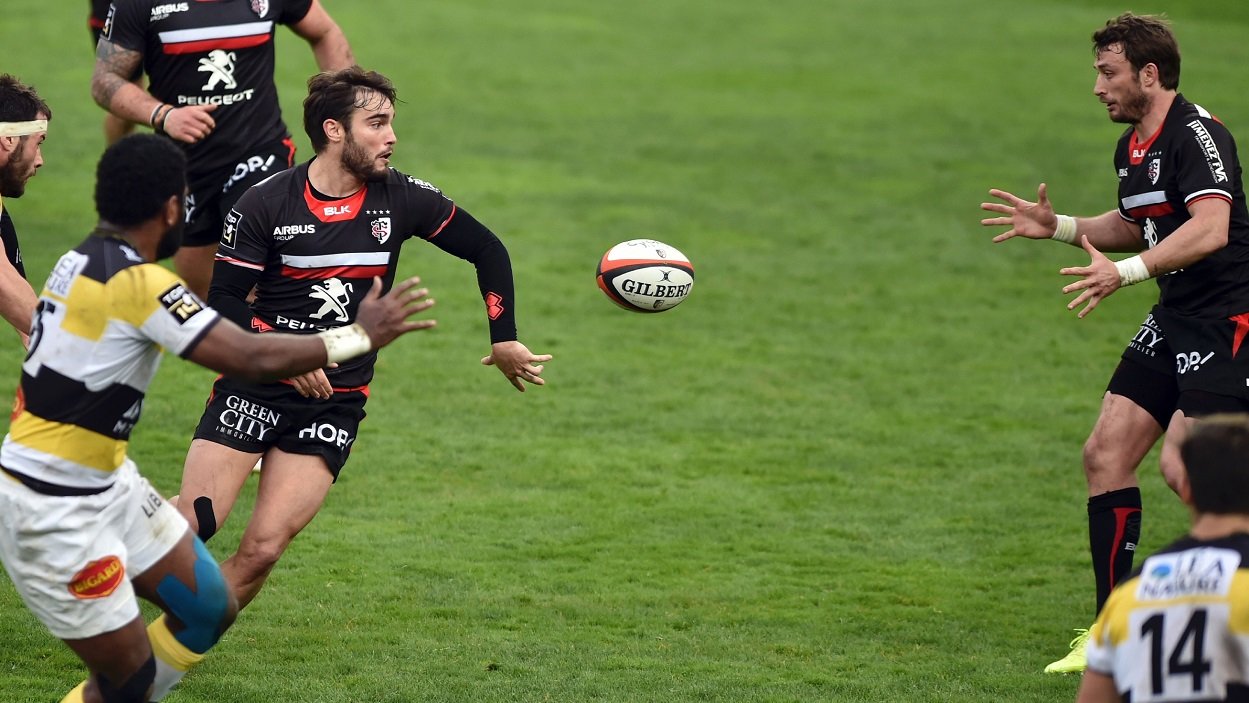Was Alexis Palisson another case of concussion mismanaged?

An incident involving Toulouse winger Alexis Palisson during the weekend’s Top 14 match against La Rochelle raises more concerns over player welfare and the administration of concussion protocols, writes James Harrington.
The Top 14 match between Toulouse and La Rochelle should be remembered.
It should be remembered because it was La Rochelle’s first-ever win at Stade Ernest Wallon. It should be remembered because, following Clermont’s defeat at Castres just 24 hours earlier some 90-odd kilometres up the N126 from Toulouse, it was the match that saw the visitors move four points clear at the top of the table with just six rounds of the regular season remaining.
But it will be remembered for a very different reason. It will be remembered because it was overshadowed by another concussion controversy.
Thirteen minutes in, Toulouse’s 83kg winger Alexis Palisson tried to stop 103kg Levani Botai’s in his tracks. But the La Rochelle man had already built up quite a head of steam. This is what happened next:
https://twitter.com/greub1/status/838422731012059137
Then, Palisson tried to stand up:
– Le protocole est bon, on va relancer Alexis.
Y'a plus de respect. https://t.co/OTMEkPu0tX— David Arrieta (@arrietadavid1) March 5, 2017
It is safe to say the Toulouse 11 was unfit to continue. He was helped off the field and replaced by Jean-Marc Doussain.
According to World Rugby’s ‘recognise and remove’ concussion protocols, any player displaying clear or suspected signs of loss of consciousness should be permanently and immediately removed from the field of play (emphasis added).
No Head Injury Assessment (HIA) should take place. So it would appear that Palisson’s match was over.
And yet, he returned six minutes later, after apparently passing an HIA that he probably should not have had. He finished the match.
Canada and Oyonnax player Jamie Cudmore has long been an advocate of player welfare in cases of concussion. His Rugby Safety Network was set up to raise awareness of the health issues surrounding head injuries. In an interview with Rugby Pass in January 2017, Cudmore spoke of his concern over HIAs.
Speaking at the time, he said: “Suspecting a concussion probably means a concussion. If there’s any suspicion, take the guy off. I don’t see it’s that difficult to figure out.”
[rugbypass-ad-banner id=”1473723660″]
In May 2014, another Toulouse player, Florian Fritz – who was also playing on Sunday, and who also spent time off the pitch for an HIA – was at the centre of a similar controversy.
In the 19th minute of a Top 14 playoff match against Racing 92 (then known as Racing Metro 92), he clattered into Francois van der Merwe’s knee. As with the weekend’s incident involving Palisson, it was an accident.
Fritz tried to stay on the pitch, fighting off those who were trying to help him. Then he tried to walk off for treatment. He couldn’t. He had to sit down. A stretcher was brought out. Eventually, to an ovation from the crowd, he managed to walk, with aid, to the medical room. Gael Fickou came on as a replacement.
Then, quarter of an hour later, and in front of TV cameras, this happened:
Shortly afterwards, Fritz, with 12 stitches in his head and still apparently glassy-eyed, returned to the pitch at Ernest Wallon for the final five minutes of the first half. He was substituted at half-time.
Four months after the Fritz incident, France’s Ligue National de Rugby, which runs the Top 14, sent a strongly worded letter to Toulouse, reminding the club of its obligations regarding the treatment of players with concussion.
Given that World Rugby is working even harder to raise awareness of the dangers of concussion, perhaps Toulouse will receive something a little stronger than a pointed note from the headmaster this time.
























